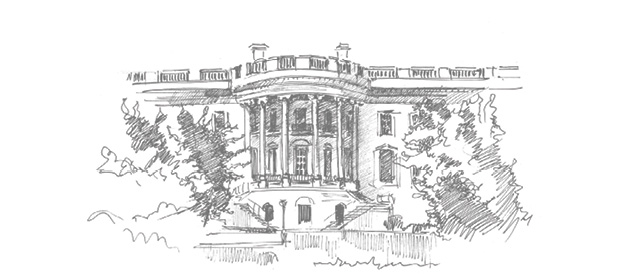


President Harwell clenched and unclenched his left hand while sitting in the situation room beneath the White House, as now on the evening before the Memorial Day holiday, the countdown of hours until the incursion plan was put into play had reached single digits. He once again mulled over the intricacies of the scheme which had been developed by the Chiefs of Staff, and understood that although brilliant in its conception, it was dangerous. Of course any action with that many moving parts which were set to play out in a synchronized manner would inherently involve risk, but the President hoped that this particular plan would be pulled off with minimal setbacks.
Seated to his right was Christopher Westin, and as he too mulled over the complex yet necessary action, he inquired, “Do you think they will retaliate Sir?”
After a brief pause the President replied, “Well that’s hard to say Chris, but I certainly hope that it won’t come to that. I believe that any overly aggressive counter action on their part would be a mistake, because if truth were told, Texas doesn’t possess the strength of military infrastructure to go up against us. Besides, if the early phases of our operation go according to plan, then the level of what Texas does possess will be further diminished.”
“Yes sir, but what if the initial ruse is discovered to be nothing but misdirection?”
“Well if our people do their job correctly, then Texas will believe the trucking companies and their unions are responsible as opposed to the United States. That should promote a level of caution on their part as to how they would retaliate, but those few who are truly running the show in Texas right now have shown a high level of bravado in the past. Such passion without calming influence can be destabilizing, therefore it’s possible that they will defy the odds and retaliate anyway.”
“That is exactly my concern sir. So for the sake of argument, should there be a retaliatory strike by Texas, then where do you believe they will attempt their main thrust?”
President Harwell explained to his old friend and confidant that in recent days he had studied various maps and satellite photography. Those had helped him to clearly understand where the United States, based on the absence or presence of geographic obstacles, could be the least and most vulnerable to a counteroffensive.
Beginning with those regions which were more easily defendable, the President divulged that more than two-thirds of the border with Louisiana, which included every inch south of Logansport, was defined by water of either the lengthy Toledo Bend Reservoir, the Sabine River, or by that of extensive marshy swamps. As a result there were only eight crossings including Highway-64 at Logansport which existed along that stretch of the border. With regard to the section of border along northern Louisiana, there were several more crossings which would need to be monitored. However the spaces between them presented the challenge of terrain which was more hilly and forested. Therefore the President believed that checkpoints placed at each of those crossings could be easily manned by troops from either Fort Polk in nearby Leesville, or Barksdale Air Force Base in Bossier City.
The President continued by discussing the lengthy stretch of the Red River which defined a section of the short border with Arkansas and a substantial portion of the quite lengthy Oklahoma border. Even with the multiple crossings of either highways or interstates to monitor along that portion, at least the river would alleviate the problem of needing to defend the spaces between them. In essence, the Red River created a well-defined and somewhat defendable border for the United States much like the Rio Grande had done in the past.
In turning to the more vulnerable regions of the United States border with Texas, the vast stretches of flat or hilly desert terrain in New Mexico and western Oklahoma were the most troublesome. However in spite of nearly all of that area being wide open for ease of mobility and advancement, that same geographic characteristic also made any maneuvers difficult to conceal. Nevertheless the President and the Joint Chiefs had agreed that of the four states which bordered Texas, those of the western flank would be the most difficult to protect if retaliation were to occur.
